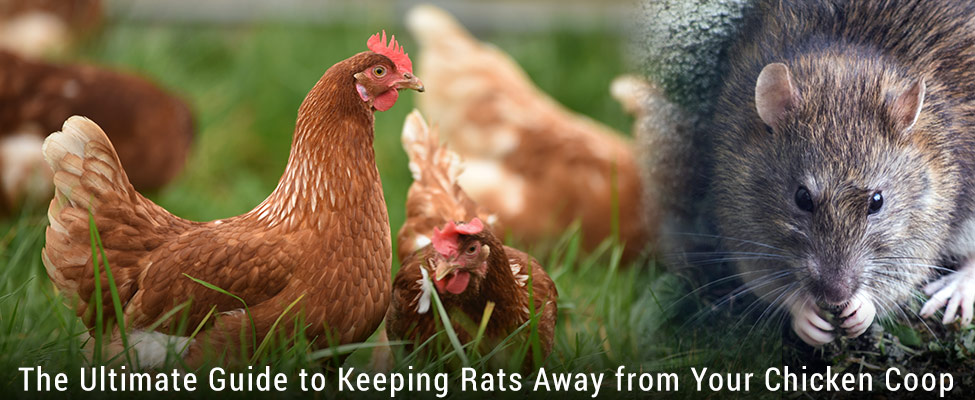Last Updated on November 27, 2023 by Pauline G. Carter
Rats can eat chicken if it’s cooked and served in small, boneless pieces. Avoid giving them raw chicken due to potential bacterial infections.
Rats are omnivorous creatures with a varied diet that can include cooked chicken as a source of protein. Given their size and dietary needs, portions should be small and free of any bones to prevent choking hazards. It’s important to ensure the chicken is fully cooked to avoid the risk of salmonella or other bacterial infections.
Chicken should be offered sparingly, as part of a balanced diet including fruits, vegetables, and grains to maintain their health. Pet owners must always consider the nutritional value and safety of food before sharing it with their pet rats to support their wellbeing.
Can Rats Eat Chicken Safely?
Have you ever caught your pet rat eyeing your dinner plate with eager eyes? Perhaps it’s the piece of chicken that has caught its attention. You might find yourself pondering, ‘Can rats eat chicken safely?’ While sharing your meal with your furry friend can be tempting, it’s imperative to know what’s safe for them to nibble on. Let’s dive into the world of rats and their dietary compatibility with chicken.
Rodent Dietary Needs
Rats are omnivores – they thrive on a varied diet that includes both plant-based and animal-derived foods. Their natural diet comprises seeds, grains, insects, and occasionally, a protein treat in the form of small vertebrates. Captive rats rely on their human caretakers to provide a balanced diet that reflects this diversity. It is crucial to understand the nutritional requirements of rats to ensure they receive all essential nutrients in appropriate quantities.
- Proteins for growth and repair
- Carbohydrates for energy
- Fats for essential fatty acids and energy
- Vitamins and minerals for metabolic processes
Evaluating Chicken As A Potential Food Source
Chicken, as a lean protein, can be seen as a viable component of a rat’s diet. It can potentially supply your pet rat with plenty of proteins that aid muscle development and repair. However, the serving size and preparation are critical. Chicken should be cooked thoroughly to eliminate any harmful bacteria and offered in moderation, forming only a small part of the rat’s diverse diet. Seasonings and oils commonly used in human cuisine can be harmful to rats and should be avoided.
| Chicken Preparation | Safe for Rats? |
|---|---|
| Raw | No |
| Cooked without seasonings | Yes, in moderation |
| Fried or heavily seasoned | No |
Health Considerations For Rats Consuming Chicken
Rats consuming chicken must be monitored for any adverse reactions. As with any new food, it should be introduced slowly and in small amounts. Overindulgence in high-protein foods like chicken can lead to weight gain and nutritional imbalances. Specifically, excessive protein can strain a rat’s kidneys. What’s more, bones are a choking hazard and should always be removed before offering chicken as a treat. Regular health checks with a veterinarian, ensuring a balanced diet and maintaining an appropriate feeding schedule, will keep your rat healthy and happy.
- Introduce chicken slowly to the diet
- Monitor portions to prevent protein overload
- Avoid chicken bones
- Consult with a vet for personalized dietary advice

Credit: www.chickenguard.com
Nutritional Value Of Chicken For Rats
The nutritional value of chicken for rats is a topic of interest for many pet owners looking to diversify their furry friend’s diet. Chicken, known for its high-quality protein, can offer rats a robust source of essential nutrients vital for their overall health and wellbeing. Understanding what chicken brings to the table can help ensure that pet rats enjoy a balanced and nutritious diet.
Protein Content And Rat Metabolism
Protein is a pivotal component in a rat’s diet, and chicken is an excellent source. Rats require protein for muscle maintenance, tissue repair, and general body growth. The protein in chicken is highly digestible and can be efficiently utilized by a rat’s metabolism.
- Essential amino acids in chicken support healthy development.
- Protein aids in maintaining rat’s lean body mass.
- Ideal for younger, growing rats or pregnant females with increased protein needs.
Striking a balance in protein intake is vital; too much protein can lead to health issues such as kidney strain. Therefore, chicken should be offered in moderation as part of a varied diet.
Vitamins And Minerals In Chicken
Chicken not only provides protein but is also rich in various vitamins and minerals that are essential for a rat’s health:
| Vitamin/Mineral | Benefit to Rats |
|---|---|
| B Vitamins | Supports energy metabolism and brain function. |
| Niacin | Crucial for the health of the rat’s skin and nerves. |
| Phosphorus | Works with calcium to maintain strong bones and teeth. |
| Selenium | Plays a role in antioxidant defense and thyroid function. |
It is essential to offer chicken that is cooked without harmful seasonings or additives that could negatively impact a rat’s health.
Balancing Chicken With Other Dietary Components
Incorporating chicken into a rat’s diet should be done with consideration for balance. Varying the diet to include grains, vegetables, and occasional fruits ensures that rats receive a spectrum of nutrients. Strategies to maintain dietary balance:
- Serve chicken as a supplemental protein, not a sole dietary item.
- Combine chicken with nutrient-rich vegetables for a complete meal.
- Limit chicken portions to avoid excessive protein and fat intake.
Remember that a rat’s primary diet should consist of high-quality rat pellets, which are specifically formulated to meet their nutritional needs. Chicken serves as an occasional treat, complementing the staple diet rather than replacing it.
Preparing Chicken For Rat Consumption
Rats are known for their omnivorous diet, which means they can enjoy a variety of foods, including the occasional piece of chicken. However, preparing chicken for rat consumption requires careful attention to ensure it’s safe and healthy for your furry friend. This part of your pet’s diet should be approached with a specific set of considerations to safeguard their well-being.
Cooked Versus Raw Chicken
When considering introducing chicken into your rat’s diet, you have two options: cooked or raw. Although rats in the wild may eat raw meat, domesticated rats should always be served cooked chicken. Cooking the chicken ensures that any potential bacteria or parasites are eliminated, reducing the risk of transmitting food-borne illnesses to your pet rat.
- Always cook chicken thoroughly until no pink meat remains, and the juices run clear.
- Avoid adding oils, butter, seasoning, or sauces which can harm your rat.
- Once cooked, let the chicken cool completely before serving to prevent mouth burns.
Safe Serving Sizes And Frequency
Just like humans, rats require a balanced diet to remain healthy. Chicken can be a protein-rich complement to their daily intake, but it should not replace their standard meals based on specially formulated rat food. Small, infrequent servings of chicken are key.
| Age of Rat | Serving Size | Frequency |
|---|---|---|
| Young / Growing | A small cube (about 1cm3) | 2-3 times a week |
| Adult | One or two small cubes | Once a week |
Potential Risks Of Chicken Bones And Skin
When feeding your rat chicken, be cautious of the bones and skin. Small bones can be a choking hazard and may cause internal blockages or punctures. Chicken skin, on the other hand, is high in fats and can contribute to obesity in rats if fed excessively. Here are some safety tips:
- Remove all bones before serving your rat cooked chicken.
- Trim off the skin and any visible fat to reduce the risk of digestive issues.
- Stick to lean, boneless, skinless chicken breast meat as a safer option for your rat.
By following these guidelines, you can safely incorporate chicken as a delightful treat in your rat’s diet.
Alternatives To Chicken In A Rat’s Diet
Seeking alternatives to chicken in a rat’s diet can be both a fun and essential task for pet owners. Whether for ethical reasons, dietary restrictions, or simply for variety, providing your furry companion with diverse food choices ensures a happier, healthier rat. Below, discover a range of nutritiously rich and rat-friendly food alternatives that will excite their palate while catering to their dietary needs.Plant-based protein options for rats
Plant-based Protein Options
Proteins are crucial for your rat’s growth and repair, and plant-based options offer an excellent alternative to chicken. Legumes, like lentils and peas, are packed with protein and easy to digest for your little critter. Furthermore, cooked beans provide a healthy dose of protein and can be a delightful treat. Whole grains, such as cooked brown rice and quinoa, aren’t just for humans; they’re ideal for rats too, offering essential amino acids in a plant-based form.
- Legumes: Lentils, peas, and beans (cooked)
- Whole grains: Brown rice, quinoa, barley
- Nuts: (in moderation) Almonds, walnuts
Commercial rat feed formulations
Commercial Rat Feed Formulations
Commercial rat feeds are designed to meet all the nutritional needs of your pet. These formulations usually contain a blend of seeds, grains, and protein sources, offering a balanced diet that mimes a rat’s natural intake. Lab blocks or pellets are specifically formulated for rats and provide a complete diet with the correct balance of nutrients, ensuring that your pet receives everything it needs to live a long, healthy life.Supplemental foods for balanced nutrition
Supplemental Foods For Balanced Nutrition
Supplemental foods are an integral part of a rat’s diet, providing the vitamins and minerals they might miss out on. Fresh fruits and vegetables, such as carrots, apples, and broccoli, can be given daily in small amounts to diversify their diet. Don’t forget leafy greens, which are loaded with nutrients. Occasionally, cooked eggs or small portions of plain, low-fat yogurt can add a protein boost. Always ensure that these foods are served in moderation, as a complement to the rat’s main diet.
| Food Type | Benefits |
|---|---|
| Fruits (e.g., Apples, Bananas) | Provides vitamins, hydration, and natural sugars |
| Vegetables (e.g., Carrots, Broccoli) | Offers vitamins, minerals, and fiber |
| Leafy Greens (e.g., Kale, Spinach) | Rich in vitamins A, C, and K |
| Eggs (cooked) | Additional source of protein |
| Low-fat Yogurt | Supplies calcium and probiotics |
Frequently Asked Questions Of Can Rats Eat Chicken?
Is Chicken Safe For Rats To Eat?
Rats can safely eat chicken in small, occasional amounts as it provides protein, but it should be cooked and free of seasoning.
Can Rats Have Raw Chicken?
Offering raw chicken to rats is not advisable due to potential bacteria like Salmonella that can cause illness.
How Much Chicken Can A Rat Eat?
Rats should only have a tiny piece of chicken as a treat, ensuring their main diet consists of nutritionally complete rat food.
Are There Benefits To Feeding Rats Chicken?
Feeding chicken to rats can offer extra protein, but it’s important to balance their diet with a variety of other healthy foods.
Could Chicken Bones Harm My Rat?
Cooked chicken bones can splinter and pose a choking hazard to rats, so it’s safer to avoid giving them any bones.
What Meat Is Best For A Rat’s Diet?
Lean meats like cooked chicken or turkey are suitable for rats in moderation, but their main diet should be specially formulated rat food.
Conclusion
To sum it up, chicken can be a part of a rat’s diet when given in moderation and prepared safely. Protein-rich and cooked without harmful seasonings, it offers nutritional benefits. Remember, always prioritize your pet’s health with a balanced diet and proper care to ensure their well-being and longevity.


